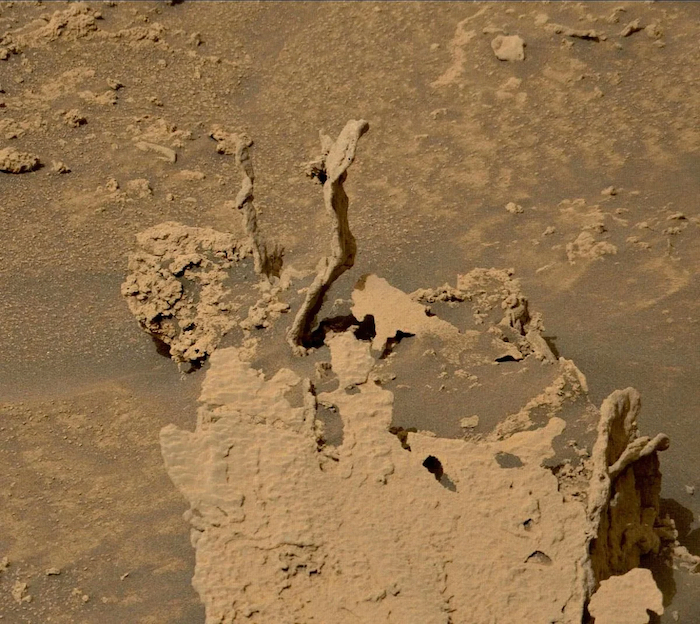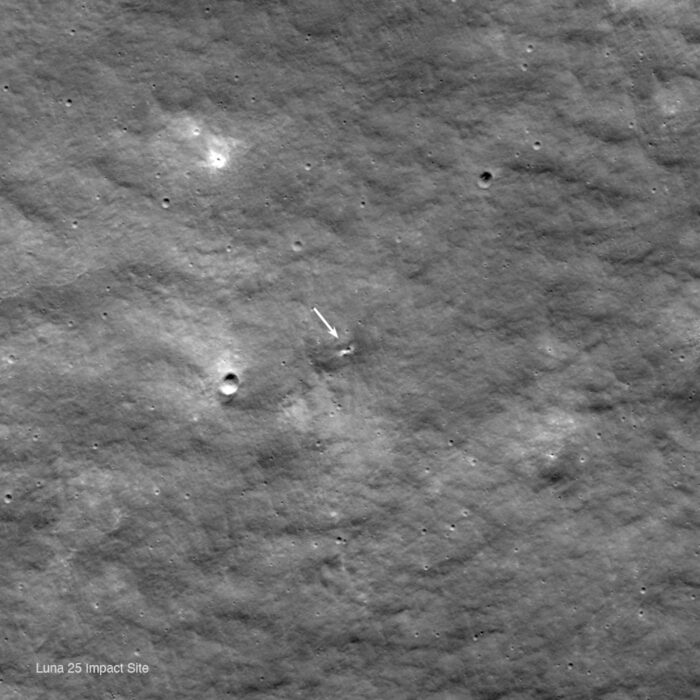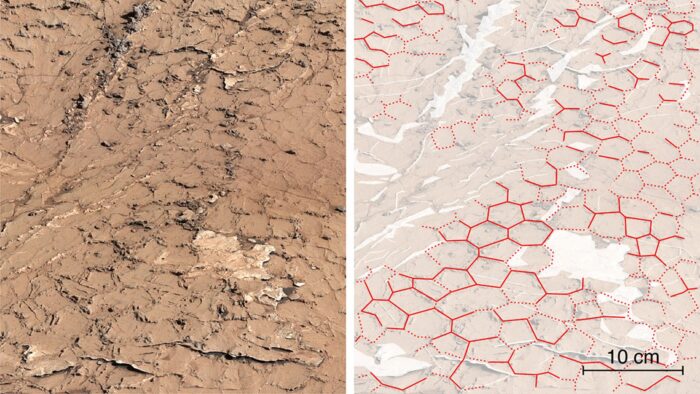A brand new find by the Martian rover Curiosity is proving that the amazing machine knows how to live up to its name.
It's curious. We're curious. And the rocks that it just found? Very curious indeed!
At first glance, they look like the antlers of some fossilized antelope, sticking up from inside a slab. But that's not what it is. (If there are any fossils of long-extinct life on Mars, we haven't discovered them yet!)
So what's the story behind these unusual rocks?
Worn away
According to researchers, it likely has to do with erosion—and how erosion affects two different types of rock.
Let's look at the formations again.
#PPOD: Here is another cool rock at Gale crater on Mars! The spikes are most likely the cemented fillings of ancient fractures in a sedimentary rock. The rest of the rock was made of softer material and was eroded away. ?: @NASA @NASAJPL @Caltech #MSSS fredk, acquired on May 17. pic.twitter.com/RGfjmRBfI7
— The SETI Institute (@SETIInstitute) May 26, 2022
As this tweet discusses, researchers think that this rock formation was likely formed by harder material seeping into a crack in rock and setting into a solid form. Then, over time, the softer rock that surrounded it was worn away, leaving only the harder material behind. Now we have our rock antlers!
In this way, it is similar to what happens when you pour concrete or molten metal into a mold to create a shape. Then, the mold is removed, leaving behind an object.
A metalworker removes a statue from a mold. (Getty Embed)
These delicate spires are also very similar to a flower-shaped structure that was discovered by Curiosity earlier this year. It could be that these beautiful formations are waiting to be discovered all across Mars. Why do they form there? What do they say about the unique geology of Mars?
That's something else we're pretty curious about. Thankfully, humanity's exploration of our neighbour is only getting started!
 This remarkable rock formation, photographed by the rover Curiosity recently, is actually somewhat similar to another discovery on the planet. (NASA/JPL-CalTech)
This remarkable rock formation, photographed by the rover Curiosity recently, is actually somewhat similar to another discovery on the planet. (NASA/JPL-CalTech)









